Post-Covid Mucormycosis: Prompt Surgery Saves Eyes Of 60-Year-Old Woman With Deadly Black Fungus

A team of doctors at Wockhardt Hospital successfully performed surgery for post-Covid mucormycosis on a 60-year-old woman to save her eyes. Nagma Sheikh (Name changed), a housewife who is a resident of Mira Road, contracted Covid-19 in April and was admitted to a hospital for Covid treatment. Apparently, due to excessive use of steroids, the patient soon noticed symptoms such as intolerable headaches and blackish nasal discharge, nasal congestion, and swelling of the left eyes. She consulted various hospitals in Mumbai, but nothing seemed to provide her that much-needed relief. Finally, she was successfully treated at Wockhardt Hospital, Mira Road where she underwent surgery for the deadly black fungus. The surgery was performed by a team headed by Dr Sheetal Radia and Dr. Chandraveer Singh, Consultant Otorhinolaryngologist and Head & Neck Onco Surgeon. Dr. Singh said, “On arrival in an emergency, the lady exhibited the symptoms such as blackish nasal discharge, nasal congestion, headache, and swelling of the eyes. By KOH mounting frozen section and MRI, it was confirmed that it is mucormycosis.” Mucormycosis: Causes And Risk Factors Mucormycosis or black fungus is a rare infection that occurs after exposure to mucormycetes mold. It affects paranasal sinuses, the base of the skull, eyes, lungs, and brain, and is common in people suffering or recovering from COVID-19 due to excessive use of steroids. This black fungus is seen in those with low immunity, irrational use of steroids, having high diabetes and other comorbidities, using dusty humidifiers, having prolonged hospital stay, and ones on medication that lowers their ability to fight germs and viruses – Dr. ChandraVeer explained. According to the doctor, the woman’s infection had invaded the nose, base of the skull, eyes, and could have led to blindness, loss of body tissue, and damaged to the other vital organs of her body. Hence, the patient was scheduled to undergo surgery as soon as possible. “The surgery involved removing the engulfing tissue where the cribriform plate of the base of the skull was removed and the Orbit medial wall was removed to remove the edema of an eye. Mucormycosis from all sinuses and base of the skull and medial wall of the eye was removed too. The mucormycosis is removed with debris tissue in 2 hours,” Dr. ChandraVeer elaborated. Source: https://www.thehealthsite.com/news/post-covid-mucormycosis-prompt-surgery-saves-eyes-of-60-year-old-woman-with-deadly-black-fungus-815487/
After Black Fungus, White Fungus Infection Cases Reported In India: Deadlier Than Mucormycosis, Say Experts
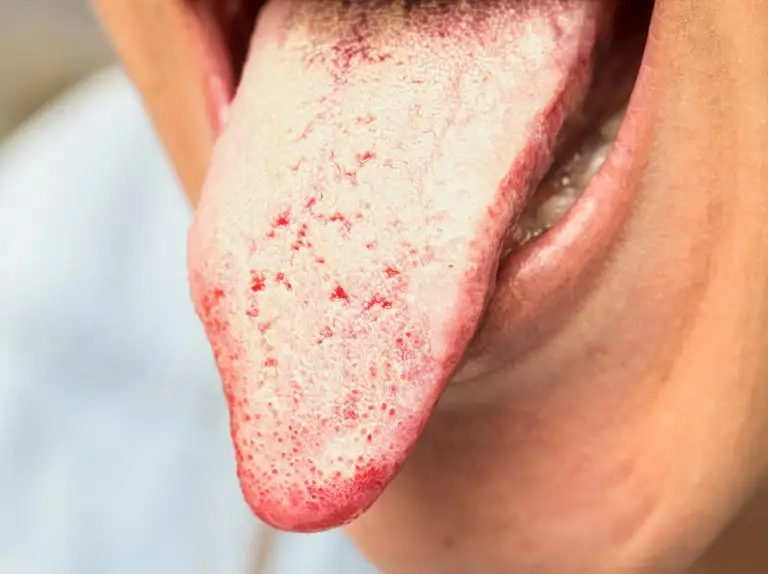
According to medical experts ‘White Fungus’ is deadlier than Mucormycosis as it affects other organs of the body apart from the lungs. Amid the rising concerns over the reporting cases of Mucormycosis or ‘Black Fungus’ in Covid recovered patients, recently there are several cases of ‘White Fungus’ that have been reported in Bihar. According to medical experts, ‘White Fungus’ is deadlier than Mucormycosis as it affects other organs of the body, apart from lungs. At least four patients of ‘White Fungus’ have been detected in Bihar’s capital Patna. Dr. SN Singh, Head of Patna Medical College and Hospital’s Microbiology Department told the media that there could be many more cases of such infection. The people with low immunity or having diabetes, AIDS patients, or those who have undergone organ transplant are more vulnerable to this disease, he said. He also pointed out that negligence while using oxygen cylinders for Covid patients can put them at risk of ‘White Fungus’. “People use tap water in the humidifier attached to the oxygen cylinder. Tap water may contain ‘White Fungus’ which can be a source of chest infection in the person on oxygen support,” Dr. Singh said. Dr. Honey Salva, Internal Medicine, Wockhardt Hospitals, Mumbai Central, said, “White Fungus is nothing but an infection caused by the Candida group of organisms. It belongs to the fungus category. This fungus infection can affect your hair, skin, nails, private parts and can respread through the blood veins to various different organs. It can severely affect the lungs, especially those are in the ICU and the ventilators. This infection can cause real deadly fatal candida infection.” How White Fungus differs from Mucormycosis or black fungus? “Mucormycosis or black fungus is different from White fungus because it is known to cause whitish membrane where ever it causes a disease or whitish discharge occurring in the private parts,” explained Dr. Salva. What are the treatments for this? “Treatment of this differs from black fungus as it is treated by fluconazole, Voriconazole or Caspofungin type of drugs and Amphotericin is not used over here. Of course, it is not a fatal infection but we are seeing an increase in the number of cases of white fungus because of the indiscriminate use of steroids and due to use of immune modulator drugs”, Dr. Salva says. It is not just common in Covid patients but it was always common in the cancer patients who have low immunity and patient’s other serious health conditions. Now due to the increased number of Covid cases we are seeing more use of steroids resulting in more black fungus and white fungus. Hence, during these times avoid indiscriminate use of steroids to prevent any new fungal infection to pop up again, said Dr. Salva. Source: https://www.healthwire.co/after-black-fungus-white-fungus-infection-cases-reported-in-india/
Dark Side of COVID-19 Associated Mucormycosis

As a deadly second wave of COVID-19 continues to ravage India, the medical fraternity in our country is not only concerned about this contagious virus but also other complications that are being reported by the patients. Cases of Mucormycosis, commonly known as the black fungus-a debilitating and life-threatening infection are being reported among COVID-19 patients and survivors. Dr. Siddhartha Saoji, an endoscopic ENT surgeon at Wockhardt Hospitals quoted “Mucormycosis, a life-threatening infection, is promulgating in these people especially patients who have diabetes. If left untreated, this can result in blindness/ Decreases vision/ double vision and even deterioration Of general condition.” For a patient’s infection with the fungus, the clinical deterioration may start not In the span of the day but in the span of just a few hours. Consequently, the post-COVID patients, as advised by health experts, should remain very vigilant in looking for the early symptoms. If someone has contracted the Mucormycosis (black fungal) infection, there are a few warning signs they Can look out for, like pain around the eyes/nose, facial swelling, double vision, decreases vision, loosening of teeth ache, headache, fever, and even nose bleed. The case of Mucormycosis is alarmingly rising. A certain category of people is more prone to get infected by this fatal infection. People having diabetes, especially diabetic ketoacidosis, cancer organ transplant, Stem cell transplant, Neutropenia (low number of white blood cell), long-term corticosteroid use, Injection drug use, too much iron in the body (iron overload hemochromatosis), Skin injury due to surgery, burns, or wounds, Prematurity and low birth weight are more to get an infection post-COVID infection. The diagnosis of this is mainly based on a clinical evaluation by an ENT surgeon. A diagnostic endoscopy with visualization of the typical blackish lesion is usually followed by a biopsy to confirm the presence of fungus. Imaging with contrast MRI (or contrast CT if MRI is not feasible) is essential to understand the extent of involvement and should be done as soon as possible. As far as the treatment is concerned all these patients require surgery, regular debridement, management with anti-fungal drugs and other allied medical treatment as per protocol and long time follow up. Timely diagnosis and intervention result in a better outcome and prevent the spread of infection to the eyes and brain. Dr. Saoji informed the most of the patients arrive late when they are already losing vision, and doctors have to surgically remove the eye to stop the infection from reaching the brain. In some cases, it can require surgery; it can lead to eventual loss of the upper jaw sometimes even an eye. Here’s Guide for Do’s and Don’t’s Do’s- Don’t’s- So keep your eyes peeled for any signs and symptoms and report immediately in case you experience them!! We at Wockhardt Hospitals are trying to keep our nose to the grindstone and help the community fight the covid 19 pandemics. Source: https://thelivenagpur.com/2021/05/16/another-dark-side-of-covid-mucormycosis/
Importance Of Monitoring Blood Pressure On A Regular Basis During Pandemic
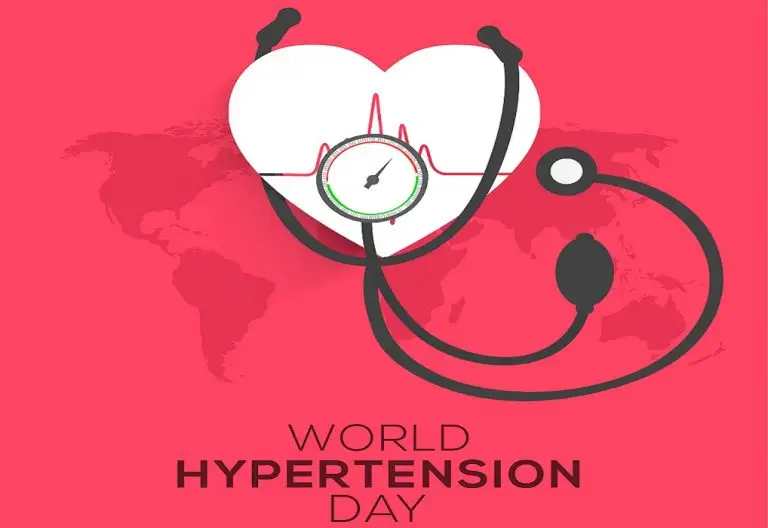
Coronavirus has wreaked havoc all over the world. Those with comorbidities such as diabetes, cancer, and hypertension are at a high risk of getting sick from Covid-19. Hence, it is the need of the hour for those with hypertension to monitor blood pressure at home. Not maintaining healthy blood pressure will also raise the risk of serious complications owing to Covid-19. There is higher mortality and morbidity in Covid patients with hypertension. Those with hypertension contracting Covid will require hospital admission, and may also encounter life-threatening conditions such as pneumonia, organ and tissue damage. Prevention is the best defense here. Yes, you have heard it right! You will have to monitor your numbers on a regular basis to stay hale and hearty during the pandemic. Right from senior citizens to pregnant women to older adults, everyone should check their blood pressure at home. How to Monitor Blood Pressure at Home? Dr. Chetan BhambureConsultant Interventional CardiologistWockhardt Hospitals, Mira Road
Conducted Week-Long Celebrations to Honour Nurses
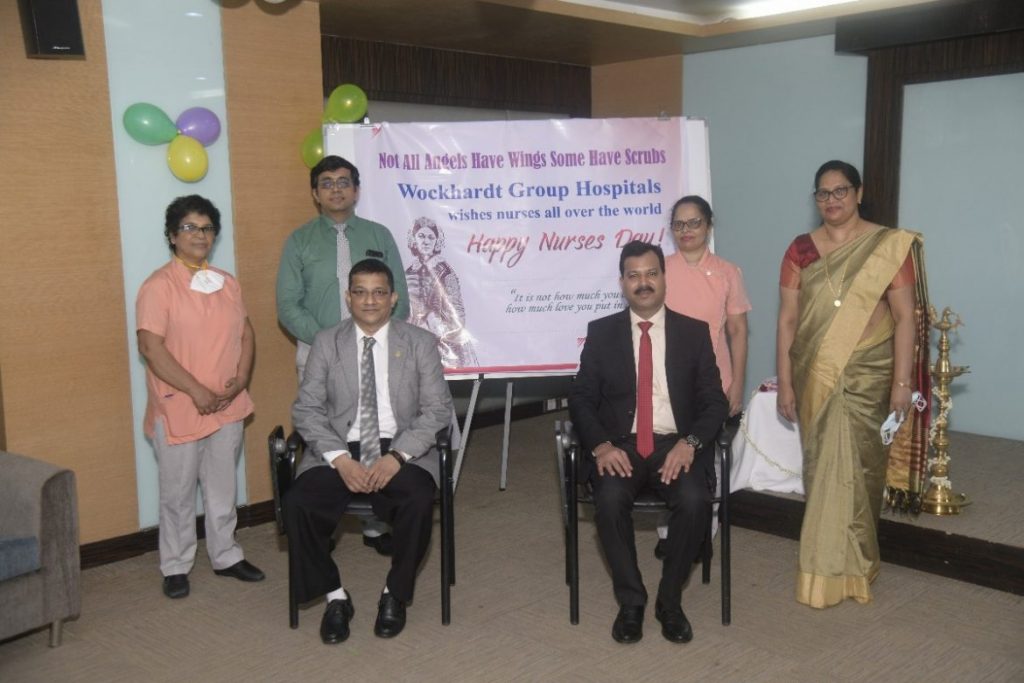
Wockhardt Hospitals celebrated International Nurses Day with great enthusiasm and excitement to honour and pay tribute to all the nursing staff for their incredible work during the pandemic. Total 1,030 nurses across Wockhardt Hospitals in Mira Road, Mumbai Central, Rajkot, Nagpur and Nashik participated in the week-long activities that were like a stress-buster. The theme attributed for this year’s International Nurses Day is – A Voice to Lead- A Vision for future healthcare. Nurses on this occasion vowed to serve the patients till their last breath. Nurses have a critical role to play when it comes to the health and wellbeing of people all around the world. The world continues to fight the pandemic and the frontline workers mainly the nurses considered as undergo have ensured patient care, safety, and support. To applaud the nurses, festive were organized over a week. The celebrations begin with the Wockhardt anthem being played in the presence of nurses, the nursing pledge by Ms. Elizabeth Joseph from Wockhardt Hospitals, SOBO, and then the felicitation of nursing heads, messages by Ms. Zahabiya Khorakiwala, Managing Director, Wockhardt Hospitals Ltd, and Dr. Clive Fernandes, Group Clinical Director. Activities like internal selfies, singing competitions, talent exhibitions, and dances were organized. The Prize Distribution was done for this competition followed by the videos of HOD, consultants, patient relatives for the Covid staff displayed as a feel-good factor. Gold coins were distributed to nurses who completed 5, 10, and 15 years at their individual unit by respective Chief of Hospital. The celebrations came to an end after a cake-cutting ceremony. Ms. Zahabiya Khorakiwala, MD, Wockhardt Hospitals, said, “The motto behind celebrating this day is to appreciate and honor the spirit of caring and curing. Our nurses have been providing round-the-clock care to covid and non-covid patients without hesitating to perform their duties. These nurses have set an example during these unprecedented times. Right from extending their shifts, comforting and consoling the patients who feel lonely, these nurses have gone an extra mile to ensure patient care and safety. Our nurses are the backbone of our hospitals and they will continue to make a difference in the society.” “Our nurses have fought all the obstacles coming their way during the pandemic and treat patients with compassion. Our nurses have made us proud. I would like to thank all the nurses who only wish to strive for the welfare of the patients. Our nurses give reassuring smiles to the patients and encourage them to lead healthier lives. Healing the ailing is the only principle followed by the nurses of the hospital. We all are together in this and will continue to provide quality care to the patients. I can proudly say that nurses are the heartbeat of healthcare,” concluded Dr. Clive Fernandes, Group Clinical Director at Wockhardt Hospitals. Source: https://thelivenagpur.com/2021/05/12/wockhardt-hospitals-conducted-week-long-celebrations-to-honour-nurses/
How does the pandemic impact maternal mental health? Experts explain
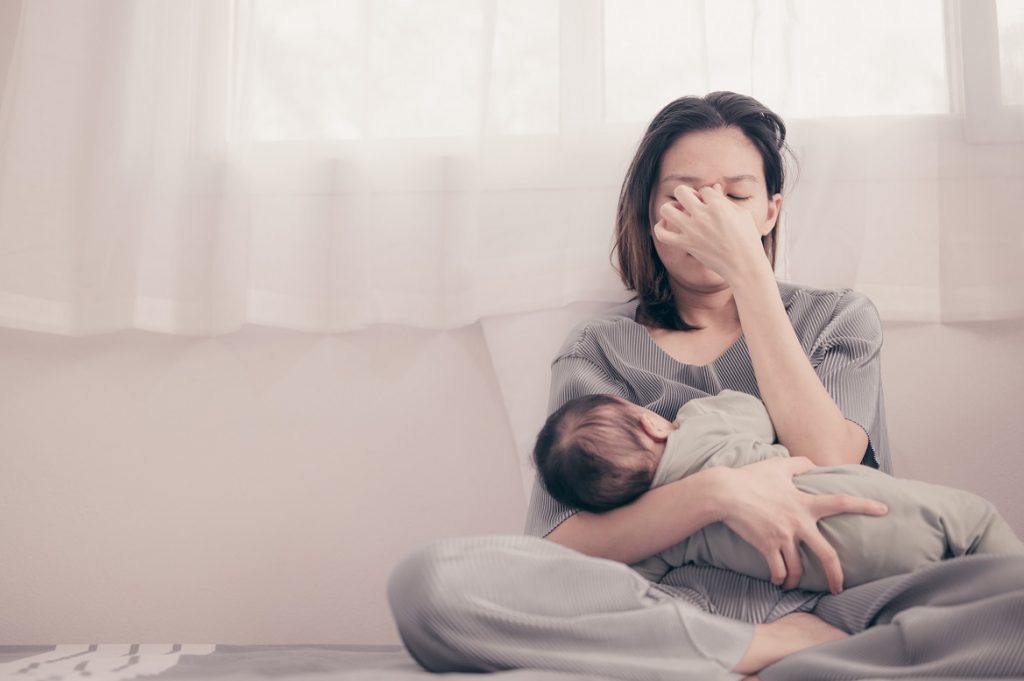
The month of May is considered as Maternal Mental Health Awareness Month. Mid-Day.com spoke to two Mumbai-based experts to understand the impact of the pandemic on new mothers and pregnant women, and what can be done to help them Coronavirus has caused an indelible impact on everyone’s mental health. New mothers and women who are pregnant have been one of the most vulnerable groups during this pandemic. Psychiatrist Dr. Sapna Bangar, who is also the head of Mpower, Mumbai, says that the pandemic adds an overwhelming feeling for pregnant women and new mothers. She says, “For a woman, feeling stressed during pregnancy is common with worries about the wellbeing of her baby.” Along with this, the stress of the pandemic has affected the mental health of pregnant women and new mothers — causing excess worry, fear of contracting the virus, being isolated, having to go through the birthing process, and the challenge of taking care of a newborn especially for first-time mothers without extended support, she says. The month of May is observed as Maternal Mental Health Awareness Month. The aim is to raise awareness and end the taboo attached to maternal mental health. According to a report published on the NCBI website, an estimated percentage of women — 10–35 percent — around the world including India suffer from depression during pregnancy and postpartum. And, due to the uncertainty surrounding Covid-19, it has been observed that there have been “higher levels of depression among women during and after pregnancy.” India is currently in the middle of an intense second wave of coronavirus pandemic. While it is hard for everyone to cope with such uncertain and grim situations, it is comparatively harder for pregnant women and new mothers because they have to be careful about themselves and also have to be cautious about their newborn or yet-to-be-born child. Speaking about the impact of the pandemic on new mothers and pregnant women, Dr. Sonal Anand, psychiatrist, Wockhardt Hospital, Mira Road, says, “Pregnant women are known to be susceptible to emotional ups and downs and stress. Due to the effects of the suppression of T cell activities and other physiological body changes pregnant women are more prone to changes in the immune system. Lack of sleep and increased daily stress can give rise to various mental health issues like anxiety, depression.” She adds that new mothers already experience anxiety related to their responsibility. The fear of the pandemic, isolation, and lack of social support adds even more pressure as most of them are already bogged down by “haywire timetables and acceptable levels of post-partum blues.” Both experts have noticed the most common maternal mental health issues to be anxiety, depression, and sleep issues. Dr. Anand says, “Fear of contracting the virus, fear of getting very sick, and fear of losing someone are the issues that are being seen. Sleep disturbances and unnecessary negative thinking are affecting mental health adversely.” While there are no concrete data or research yet on the long term effects of the pandemic on maternal mental health, Dr. Bangar opines that any mental health issues in parents, especially mothers, stress or depression leads to an increased risk of attachment disorders, behavioral problems, social difficulties, neurodevelopmental disorders such as ADHD and conduct disorders in children. Dr. Anand concurs, “It is difficult to comment on the long-term effects of this pandemic as there is not sufficient data yet. However, we know that chronic stress predisposes to rise in mental health issues.” But like everyone, even new mothers and pregnant women do have to make an effort to take care of their physical and mental health. Dr. Anand suggests practicing mindfulness and gratitude can help keep negative thoughts at bay. “Stay away from stressful news and disturbing posts on social media. Focus more on the positives. Music and art can uplift the mood. Focus on healthy eating and adequate sleeping,” she says. “Being part of support groups helps to exchange information and resources. It is important to stay connected with family and friends so as to not feel isolated. You can always seek professional help,” suggests Dr. Bangar. It is not just these women who have to take care of themselves, their caregivers and loved ones also have an important role to ensure that they are in a good mental space. Being available to them, even if that means remotely, to comfort the pregnant or new mothers to offer support, give advice, share experiences and provide reassurances makes a huge difference. “It can be very daunting especially in India as culturally the pregnancy and early days of birth and newborn care have always been supported by parents or parents-in-law or extended family. So caregivers can help by instilling confidence and reassuring the new mothers. Having virtual contact on a regular basis is important to prevent isolation and feeling overwhelmed and respecting their wishes and decisions about themselves and they are newborn,” says Dr. Bangar. Caregivers have to communicate well and also be good listeners. According to Dr. Anand, they must listen to the worries, acknowledge them and give answers with realistic reasoning. “Letting the woman know that she has supported is all that matters. Keeping the environment happy and stress-free is what caregivers should abide by,” she says. While we all are doing our best to get through a difficult period, it is important that we put extra effort to ensure that our own mental health as well as that of people around us is taken care of. Professional help should be taken whenever necessary and we all should do our bit to remove the stigma around mental health, especially maternal mental health. Source: https://www.mid-day.com/lifestyle/health-and-fitness/article/how-does-the-pandemic-impact-maternal-mental-health-experts-explain-23172305
Awareness Campaign on Hand Hygiene
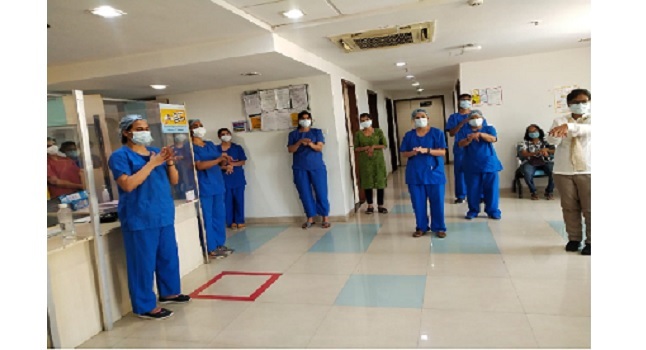
World Hand Hygiene Day was recently celebrated at Wockhardt Hospitals in Mira Road. Various engagement activities such as hand hygiene performance challenges, educational videos on hand hygiene, and the hand hygiene premier league accelerated the celebration. The motto was to spread awareness about the importance of hand hygiene practices among the patients, relatives, visitors, staff, and the community to offer protection from the COVID pandemic. Dr. Susheela Chaurasia, Infection Control Officer, Wockhardt Hospitals Mira Road said, “We are committed to educating the society by conducting various campaigns, drives, and initiatives. World Hand Hygiene day Celebration included interesting activities like Wockhardt Hand hygiene Premier League – Healthcare Providers (doctors and nurses) are aware of effective hand hygiene practice (i.e. adherence to moments of hand hygiene, time, and steps); this was an intra-departmental competition on effective hand hygiene on the workstation. Those departments with the highest compliance were rewarded.” Prabha, Manager- Quality, added, “Theme for this year given by WHO is- To achieve effective hand hygiene action at the point of care, all our activities were intended at promoting effective hand hygiene at all applicable incidences. Activities included a digital hand hygiene challenge (#HandHygiene)- sharing creative and innovative thoughts to promote hand hygiene in the community as a post on the social media account, hand hygiene awareness sessions in small groups for the staff and patients, and educational videos were played regarding hand hygiene practices. While doing all activities, social distancing and other COVID appropriate behavior were ensured.” “We are planning to cover every section of society via this 7-day campaign that started yesterday. We are making efforts so that the campaign reaches the maximum number of people who benefit from it. Many people have participated in the campaign and have shot videos and taken pictures of handwashing and have posted on their social media accounts with the hashtag #handhygiene challenge. Today, the entire world is fighting the pandemic and effective hand hygiene is one of the important measures to ensure that we are protected against COVID. Various activities conducted at the hospital were like a stress-buster in these unprecedented times. Let’s pledge to “Practice effective hand hygiene, Mentor for Clean Hands, & be a Champion,” concluded Chandini, Infection Control & Prevention Nurse, Wockhardt Hospitals, Mira Road. Source: https://indiamedtoday.com/wockhardt-hospitals-mira-road-launches-awareness-campaign-on-hand-hygiene/
How to Monitor Your Heart Health From Home
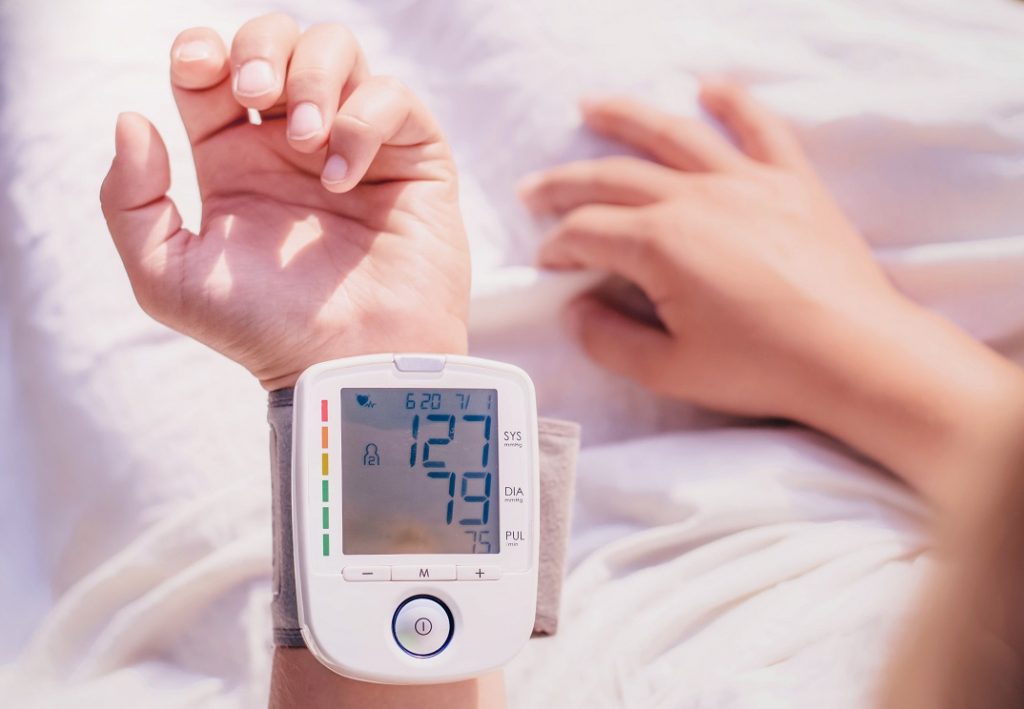
Once diagnosed with a heart condition, monitoring your heart health is critical and integral. Here is how you can monitor your heart health from the comfort of your home. 45-year-old, school teacher, Lakshmi was not new to heart problems. In June 2019, she was diagnosed with cardiac arrhythmia (palpitation, racing heart) a condition that leads to irregular heartbeats as a result of the heart pumping too fast or too slow. However, Lakshmi ignored the condition as regular medical consultations helped ensure that her condition was under control. She was managing fine until the pandemic broke out. Lakshmi started experiencing increased symptoms earlier and was unable to step out and consult a cardiologist due to concerns around her health and safety. The symptoms gradually impacted her routine chores including her professional life. When her condition worsened, she was compelled to visit the hospital after 4 months and was recommended to undergo a cardiac ECG, a medical test that helps detect heart abnormalities by measuring the electrical activity generated by the heart. Continuous Monitoring of the Heart Since it was essential that her heart rhythm be monitored for a few more days, she was put on an external loop recorder which is a small and convenient diagnostic tool for at-home continuous monitoring of the heart while carrying out daily activities. The sustained monitoring revealed that she was suffering from a fatal arrhythmia called ventricular arrhythmia (abnormal heartbeats that originate in the lower heart chambers) and had to undergo minimally invasive surgery to monitor her heartbeat and for keeping it under control. The implanted ICD device helped her to overcome a life-threatening condition like ventricular arrhythmia amidst the pandemic through timely medical intervention and treatment. The latest ICDs are equipped with advanced technologies like remote monitoring. This feature allows for Lakshmi’s heart to be monitored remotely from the comfort of her home by her doctor, thereby ensuring peace of mind for both the patient and doctor. What is a Remote Monitoring Technology, and How Does It Work? There is an increasing burden of heart diseases in India due to factors such as sedentary lifestyle, increasing stress, obesity, smoking and consumption of alcohol among others. These factors combined with a low level of awareness of the various heart conditions and their management through new-age technologies leads to high mortality rates. While prevention is important, once diagnosed with a heart condition, monitoring your heart health is critical and integral. This is where technologies like remote monitoring can help in detection and treatment much earlier as compared to a situation without constant surveillance. It can be used for patients who have undergone device implantation such as ICD (implantable cardioverter-defibrillator) or CRT-D (cardiac resynchronization therapy defibrillator) devices for managing their heart condition. The technology involves syncing the transmitter with the ICD/CRT-D to acquire data on the heart’s rate and rhythm. The computer then transmits this data to the cardiologist through a secure website. The syncing and transmission can happen 24×7, even while one is asleep and enables the cardiologist who has the medical history of the patient to offer the best medical advice, remotely. How Does This Technology Benefit Patients? According to the European Heart Journal, in the case of remote monitoring, there is a greater than 65% reduction in hospitalization and nearly 80% reduction in the time taken to detect fatalities and initiate timely action. Remote cardiac device monitoring is a game-changer that’s more important than ever because patients can be monitored from the safety and comfort of their homes. The Latest technologies such as smartphone-enabled remote monitoring help personalize and customize the approach to cardiac care by enabling patients to be in complete control of their heart health and be involved in their treatment. The technology also has user-friendly features such as simplified programming and enhanced detection and treatment capabilities to ensure safer care and improved quality of life for patients. Source: https://www.indiatoday.in/information/story/how-to-monitor-your-heart-health-from-home-1798612-2021-05-04
Does The COVID Vaccine Affect Menstruation?

The coronavirus, despite having been around since 2019, is still an unknown entity on all of the symptoms and risks it and its mutations entail. The vaccine for it, which has been brought about after a speedy R&D, is also something people are wary of. But as the government, scientists, and medical fraternity have been saying time and again, there is nothing to be scared of with the vaccine. Everyone eligible should register and get vaccinated! With the registrations opening up for the 18 to 45 age bracket too, one question that has arisen amongst the younger women is whether the vaccine affects one’s menstrual cycle. Here’s what these expert doctors have to say. “There are myths floating online that the COVID-19 vaccine will affect the menstrual cycle. This is a myth and needs to be debunked,” says Dr. Mangala Patil, Consultant Obstetrician, and Gynaecologist, Wockhardt Hospital, Mira Road. “There was a message circulating on social media which said that menstruation ‘lowers’ the immunity of a woman. Taking a vaccine, five days before, during, or after your periods won’t be safe and may not garner a sufficient response. This is a rumor,” clarifies Dr. Surabhi Siddhartha, Consultant, Obstetrician & Gynaecologist, Motherhood Hospital, Kharghar. Dr. Vaishali Joshi, a senior Obstetrician & Gynecologist at Kokilaben Ambani Hospital, Mumbai, adds, “COVID infection itself doesn’t affect menstrual cycle or flow. Any viral illness unless it is severe or critical usually doesn’t affect periods or hormones.” The “COVID-19 vaccine is safe for menstruating women in every manner. There is no study or claim to validate that the vaccine is harmful to women during their periods. Millions of women have already gotten vaccinated and didn’t record any reactions. The vaccine safe and should be taken. Also, avoid rescheduling vaccination if you are on your period. Avoid falling prey to these fake posts,” Dr. Siddhanta asserts. To that, Dr. Patil adds, “Women above 18 irrespective of their period cycles and hormonal status should get vaccinated, apart from pregnant women who aren’t listed to get vaccinated. Periods have nothing to do with your immunity.” Source: https://www.femina.in/wellness/gynaec/does-covid-vaccine-affect-menstruation-193654.html
World Malaria Day: 25 April, 2024
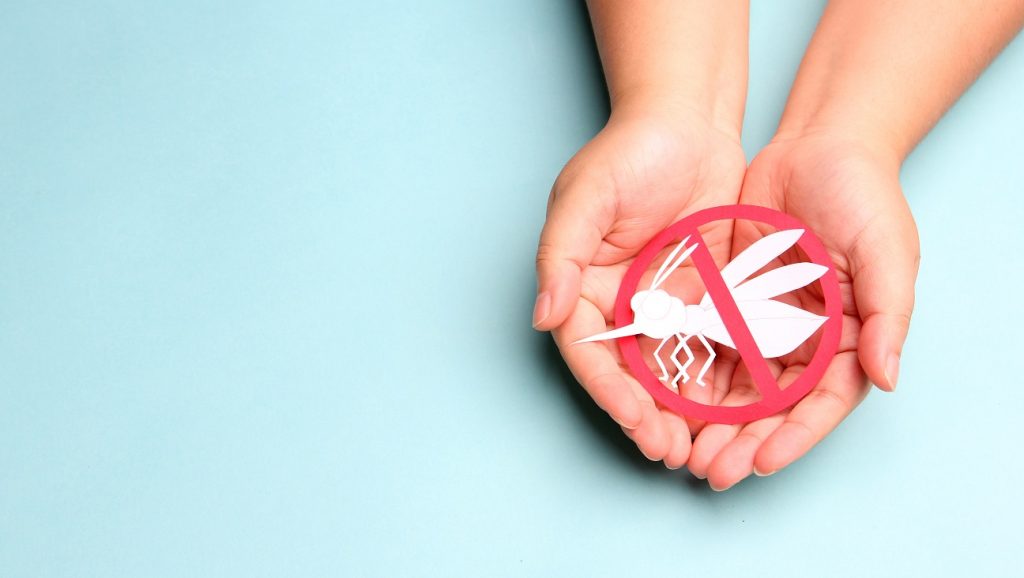
World Malaria Day is an international observance commemorated every year on 25 April and recognizes global efforts to control malaria. On the occasion of ‘World Malaria Day, Wockhardt Hospitals, Nagpur organized a drawing competition for children between the age group of 3 to 12 years. The campaign was conducted to raise awareness among the children about Malaria and its eradication. The campaign was conducted online. Kids, not just from Nagpur, but also from various cities also participated in the event. Entries were also received from Indian National children from other countries like Australia validating the ‘Draw from Distance’. “It is a difficult time for all of us physically as well as mentally. Children are confined at home which is important for their safety but also quite tedious. We initiated this activity to involve children in something creative”, said Mr. Abhinandan Dastenavar, Centre Head, Wockhardt Hospitals, Nagpur. “The idea behind this was to spread awareness while having fun and to overcome the current challenging situation going on in Nagpur as well as the country”, he added. All the participants were given goodie bags and a participation certificate as a token of appreciation. The top three entries will be posted on the social media pages of the hospital. The themes for drawings were Malaria awareness posters and the Role of Healthcare workers in an ongoing pandemic. Source: https://thelivenagpur.com/2021/04/29/world-malaria-day-wockhardt-hospitals-organize-draw-from-distance-awareness-campaign-for-kids/















